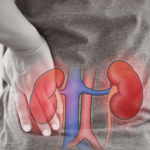Chronic health issues encompass a broad spectrum of medical conditions that persist over an extended period, significantly impacting individuals’ quality of life and well-being. From cardiovascular diseases to mental health disorders, these ailments pose significant challenges to millions worldwide. Understanding their causes, symptoms, and management strategies is crucial for enhancing patient outcomes and fostering a healthier society.
Common Types of Chronic Health Issues
Cardiovascular Diseases
Cardiovascular diseases, including heart disease and stroke, remain leading causes of morbidity and mortality globally. Factors such as high blood pressure, elevated cholesterol levels, and sedentary lifestyles contribute to their prevalence.
Diabetes
Diabetes, characterized by elevated blood sugar levels, affects millions worldwide. Type 2 diabetes, often linked to obesity and poor diet choices, is on the rise, posing serious long-term complications if left untreated.
Respiratory Diseases
Chronic obstructive pulmonary disease (COPD) and asthma are prevalent respiratory conditions, causing breathing difficulties and reduced lung function. Smoking, air pollution, and occupational hazards are significant risk factors.
Mental Health Disorders
Depression, anxiety, and bipolar disorder are among the most common mental health conditions, affecting individuals of all ages. Stigma and lack of access to mental healthcare exacerbate the burden on those affected.
Causes and Risk Factors
Genetic predisposition, unhealthy lifestyle choices, environmental pollutants, and socioeconomic disparities contribute to the development of chronic health issues. Understanding these factors is vital for effective prevention and management strategies.
Symptoms and Signs
Persistent pain, fatigue, shortness of breath, and mood disturbances are hallmark symptoms of chronic health conditions. Recognizing these signs early allows for timely intervention and improved outcomes.
Diagnosis and Treatment Options
Accurate diagnosis through medical history, physical examination, and diagnostic tests is essential for effective management. Treatment often involves medication, lifestyle modifications, therapies, and, in some cases, surgical interventions.
Managing Chronic Health Issues
Empowering individuals with self-care strategies, fostering collaboration among healthcare providers, and accessing support networks are crucial for managing chronic health conditions effectively.
Prevention Strategies
Promoting healthy lifestyle habits, regular medical check-ups, vaccinations, and environmental awareness campaigns are essential for preventing the onset and progression of chronic health issues.
Impact on Daily Life
Chronic health issues can significantly impact daily functioning, leading to physical limitations, emotional distress, financial strain, and strained social relationships.

Coping Mechanisms
Implementing stress management techniques, utilizing adaptive devices, and embracing holistic approaches can enhance individuals’ coping abilities and improve their overall well-being.
Support Systems
Building robust support networks comprising family, friends, and community resources is essential for navigating the challenges associated with chronic health conditions.
Research and Innovation
Ongoing research and innovations in treatment modalities offer hope for improved outcomes and better quality of life for individuals living with chronic health issues.
Addressing Stigma and Misconceptions
Challenging stigma and misconceptions surrounding chronic health issues requires education, empathy, and advocacy efforts to promote inclusivity and understanding.
Global Impact of Chronic Health Issues
Addressing the global burden of chronic health issues requires coordinated efforts, including policy interventions, public health initiatives, and international collaborations.
Personal Stories and Experiences
Sharing personal narratives of resilience and overcoming adversity can inspire others facing similar challenges, fostering a sense of community and empowerment.
Conclusion
Chronic health issues pose significant challenges to individuals and societies worldwide. By fostering awareness, promoting prevention strategies, and enhancing support systems, we can empower individuals to manage their conditions effectively and lead fulfilling lives.
Frequently Asked Questions (FAQs)
- How prevalent are chronic health issues globally? Chronic health issues affect millions worldwide and are a leading cause of morbidity and mortality.
- What are some common risk factors for chronic health conditions? Risk factors include genetic predisposition, unhealthy lifestyle choices, environmental pollutants, and socioeconomic disparities.
- What are some effective coping mechanisms for managing chronic health issues? Stress management techniques, adaptive devices, and holistic approaches can enhance coping abilities.
- How can individuals support loved ones with chronic health conditions? Building robust support networks and fostering empathy and understanding are crucial for supporting individuals with chronic health issues.
- What role does research play in addressing chronic health issues? Ongoing research and innovations offer hope for improved treatment modalities and better outcomes for those affected.



